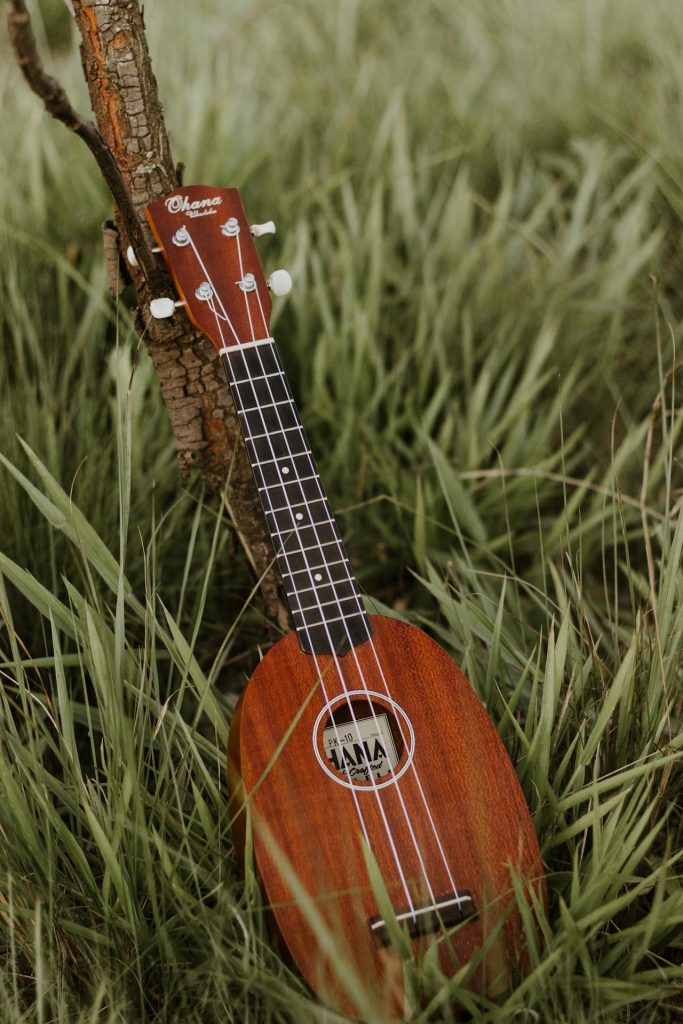“How ‘Riptide’ Created a Ripple Effect”
by Kara LaFleur
2024 Young Authors Sacred Essays Contest Runner-Up

Contemplating my impending doom had left me in an in-between state, not quite present but still cognizant of my surroundings. “Hey, is that a ukulele? THAT’S SO SICK!” a voice bellowed in my direction. “Oh, yeah, it is.” was all I could spit out because my stomach was doing backflips.
Quarantine had left me struggling to find my identity, but I had always used music as an outlet. I loved music so much — there would rarely be a moment where my room was silent. I was always listening to something (even to this day, it’s rare to catch me without headphones over my ears). I had also been playing the euphonium for a few years, and right before the world had shut down, I was gifted a ukulele for Christmas. I devoted the hours that I would have been in school to that little wooden instrument. I learned how to produce chords and strum patterns. Patterns and chords became songs, and I loved every minute with my little ukulele. Naturally, it had to go to sleepaway camp with me.
“Well, do you think you could teach me how to play the ukulele?” my counselor asked tenderly. My entire trip now had a purpose. I was going to teach someone else how to play my ukulele. I was going to show a stranger an aspect of what made me unique. I was going to show this outgoing college student something that I love to do. My nerves relaxed and I spent the next week showing my counselor, Molly, how to strum the easy chords and play a few songs. She loved playing “Riptide” by Vance Joy the best.
The next summer I came back to sleepaway camp equipped with my newfound proficiency in the guitar, but of course, I still packed my reliable ukulele for Molly. To my surprise, Molly pulled out a ukulele from behind her back and said that I had inspired her to buy one for herself. She had gotten good, too, and that year we did a duet in the camp talent show. After the talent show, I felt so proud of myself for having taught Molly a useful skill.
At the time, I viewed my teaching experience as something that simply kept me occupied at sleepaway camp. I now realize that sharing my love of the ukulele has had a profound impact on her life as well as my own. After learning how to play the ukulele, Molly started teaching the younger girls at camp how to play. Even though we’re not in touch anymore, I still follow her on social media, and I see that sometimes she plays the ukulele with her cousin who plays the piano, and they sing duets. Molly now has a creative outlet in music, and my encounter with her has had a butterfly effect on other people’s lives, too.
Knowing an instrument doesn’t solve climate change, knowing how to play “Riptide” doesn’t reverse economic hardship, and knowing how to play a C chord doesn’t reverse the loss of a loved one. However, knowing an instrument and being able to teach it can inspire others and build community. Seeing the little girls Molly taught to play ukulele go on to buy their own ukuleles and then teach their friends shows the unifying power of music and of taking the time to teach someone a new skill. Molly helped me overcome over my nerves through a mutual love of music, so maybe she helped some of those girls get over their fears through music too.
Obviously, this concept of teaching your personal passions to others can be applied to any hobby or interest. Your love of football could inspire the next Tom Brady to pick up a ball and start throwing. Your love of animals could inspire the next Steve Irwin. Love comes in many forms, and the love of a hobby and having the openness to teach your hobby to others is a great way to build a community and change lives because it creates opportunities to socially network and can also provide a creative outlet for someone who needs it.